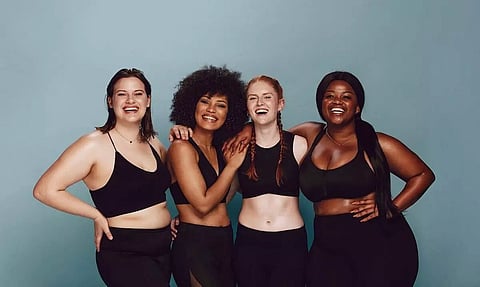
- Home
- Live Blog
- Breaking News
- Top Headlines
- Cities
- NE News
- Sentinel Media
- Sports
- Education
- Jobs

We all live embodied lives. Body image refers to how you personally experience your embodiment. More than a mental picture of what you look like, your body image consists of your personal relationship with your body—encompassing your perceptions, beliefs, thoughts, feelings and actions that pertain to your physical appearance.
For example, Ms. J., 19 years, a student of BA, 1st year is someone who most people would agree now has a reasonably attractive appearance. However, she was teased and bullied as a child about her acne and has carried the feeling of being insecure and conspicuous into young adulthood life. She believes that others will be critical of her and blames her appearance for her lack of confidence. She repeatedly checks her facial appearance in mirrors and avoids a wide range of social situations and intimacy because of her fear of being humiliated. Like many people with body image problems, she believes that if she could change what she looks like, she would feel more confident and be more successful, both in her social life and in close relationships. In other words, body image is not a simple, singular thing. It is something quite complex and multifaceted.
To get some idea of how complex this issue can be, ask yourself the following questions about your own body image:
• Are there aspects of your physical appearance that you really dislike?
• Do you think more about what you dislike about your looks than about what you like?
• Do you spend a lot of time worrying about what others think of your looks?
• Are your looks really important to you in determining your self-worth?
• Do you avoid particular activities or situations because you feel physically self-conscious?
• Do you spend a lot of time, effort, or money attempting to 'repair' your looks or trying to achieve physical perfection?
• Do you often rely on clothes or cosmetics to try to cover up the 'flaws' in your appearance?
• Do you have difficulty accepting the body that you live in? Would you rather be living somewhere else?
Your affirmative answers to these questions indicate that your body image presents some difficulties for you.
Why does your body image matter?
Body image is integral to gender identity—your feelings of masculinity or femininity. Some people believe that they don't have the physical qualities necessary to experience themselves as particularly masculine or feminine (like tallness or muscularity for guys, or thinness and having delicate features for women).This can diminish their sense of how acceptable they feel they are to others. A negative body image can cause interpersonal anxiety. If you can't accept your looks, you most likely assume others don't like your looks either.
Consequently, depression and a negative body image are often intertwined. Depression can lead people to detest their looks and vice versa. Self-disparagement and thoughts of hopelessness and helplessness about what you look like are depressing. In turn, this despondency, like quicksand, can further trap you in self- criticisms of your body. It becomes a vicious cycle of despair.
Thus reducing self criticism, accepting one's strengths and weakness and appreciating the qualities within the self can help to build positive body image.
By Dr Joydeep Das
Clinical Psychologist
Consultant, MIND India
Ask Dr Sangeeta Goswami
Question: My daughter is 16-year-old studying in class X. She is a thin built girl but she always feels that she is overweight and compares herself to her older sister regarding her looks. I don't know how to help her
Body image as we have shared here is related to self esteem. Poor self-esteem means feeling inadequate as a person and can bring down the self confidence of the person.
You can try some of these ways to enhance her self esteem and positive body image
1. Use positive affirmations: Positive affirmations such as "I am of good health. I like myself, I love myself. Such declarations help enhance our belief in ourselves
2. Identify your competencies and develop them: Self-esteem is built by demonstrating real ability and achievement in areas of our lives that matter to us. Using our core competencies will help in improving our self confidence.
3. Learn to give and accept compliments: Learning to give and accept compliments will help to increase confidence and look at oneself positively.
4. Eliminate self-criticism and introduce self-compassion: Unfortunately, when our self-esteem is low, we are likely to indulge in self-criticism. Since our goal is to enhance our self-esteem, we need to substitute self-criticism with self compassion by using positive affirmations
The bottom line is improving self-esteem requires a bit of work, but by doing so we will benefit by having emotional wellbeing in life.
Also Read: It was a day of reckoning
Also Watch: